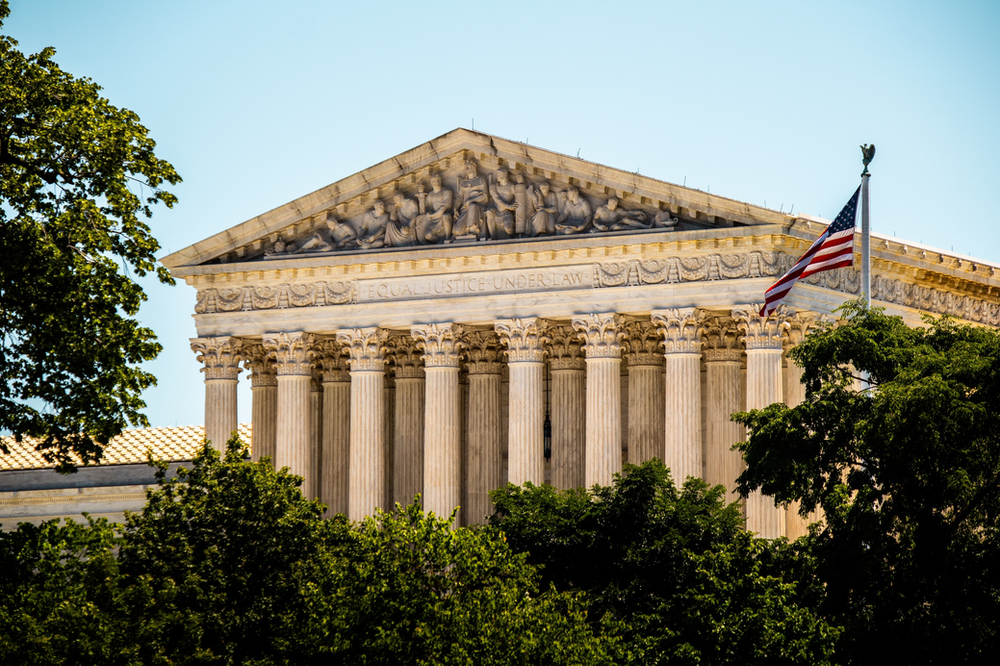Adrianne is a college admissions consultant and TV/film director, producer, writer, and actress currently based in LA. She uses her experience in multiple disciplines to help students achieve their personal and academic goals.
Over the past few months, you may have seen headlines regarding the future of affirmative action in college admissions in recent weeks, thanks to two Supreme Court cases that are currently being heard. Read on to find out more about what this might mean for all future college applicants.

Affirmative action has always been a hotly-debated topic, but in recent years, several legal challenges have fueled the debate and sparked potential change in college admissions. Polls have found that ,at least 74% of American adults don’t think race and ethnicity should be considered in college admissions. But given that holistic college admissions is a subjective process that doesn’t rely on just numbers alone, advocates for affirmative action argue that the practice is necessary in order to keep the process appropriately fair.
What is “affirmative action”?
Affirmative action is a practice or set of guidelines that are put in place to stop discrimination and actively correct wrongdoings of the past as caused by that discrimination. Since the start of many institutions of higher education in the U.S., the students were almost exclusively white, male, wealthy, and often legacy students — if you’d like to learn more about the history of and current controversy over legacy college admissions, read our post here.
So, given that higher education in the United States has a long history of exclusion of minority students and women, many Supreme Court cases in the 20th century implemented various strategies to actively balance the student populations with respect to race and gender. While many schools, especially private schools, do still have quite a bit of discretion over their admissions process, schools that receive federal funding are still subject to these policies and are certainly open to public scrutiny once they release admissions data.
The Lawsuits
On November 17, 2014, an organization called Students for Fair Admissions (SFFA) filed a lawsuit against Harvard University on behalf of a group of anonymous Asian American students who had been rejected from Harvard. The lawsuit claimed that, during the admissions process, Harvard intentionally accepted a low amount of Asian American students despite many of them having comparable and even better academic profiles to students of other races who were admitted.
This practice of having “racial quotas” in college admissions has been forbidden since Regents of the University of California v. Bakke (1978), and Fisher v. University of Texas (2013) established that race-conscious admissions policies, also known as “affirmative action,” are necessary to increase diversity in higher education.
However, a federal judge ruled in October 2019 that, while Harvard’s system of college admission is “not perfect,” it is constitutional. After an appeal in 2020, another judge confirmed this decision, but the Justice Department filed briefs arguing in favor of SFFA’s claims.
Then, another lawsuit introduced a public university into the conversation: the University of North Carolina. UNC is thus required to follow Title VI of the Civil Rights Act, which forbids public schools from discriminating against students during the college admissions process. The issue arose when UNC had been actively recruiting low-income and first-generation students to ensure a diverse student body, which SFFA argued is a form of race discrimination.
The Supreme Court had consolidated both petitions under one case in 2022 but then separated them again after Justice Ketanji Brown Jackson recused herself from the Harvard case since she is on the Harvard Board of Overseers, meaning she could only participate in the UNC decision. The Court then heard arguments in October 2022, and the entire educational system is awaiting a decision.
The key question, in this case, is how to define what “racial discrimination” is and whether practicing colorblindness — that is, not factoring race into a college admissions decision whatsoever — is a more equitable practice. Currently, holistic college admissions factors in every part of a student’s application, including race, socioeconomic status, access to various opportunities, and other important demographic factors, in order to compare students’ profiles, but that is now subject to change.
What could this mean for future college applicants?
Effectively, this won’t fundamentally change anything about the student approach to the college admissions process. Whether or not the court rules in SFFA’s favor obviously cannot change a student’s racial background, and students are not legally obligated to report their race on a college application.
But it may impact whether or not students decide to self-report their race, which many colleges do encourage. There is a pejorative stereotype of minority students, particularly Black, Latinx, and Native American students, only being admitted in order to add diversity to the student body. Statistically, this doesn’t make sense as these minority groups are still vastly underrepresented at most institutions of higher education, especially at top schools.
And MIT Admissions says the following in response to this claim: “So why then do we ask for this information? Simple – it helps us to understand who you are – in context. Remember, we don’t get a chance to meet the vast majority of our applicant pool. We need to capture as much information as possible so that we can make an informed decision.”
The cases’ outcome may possibly put an end to holistic college admissions as we currently know it, or at least undermine its foundation, but regardless, this could serve as a reassurance that there are many factors in the college admissions process that are out of a student’s control, meaning that admissions decisions do not reflect a student’s “worthiness” of attending. All they can do is work as hard as possible to take advantage of the opportunities available to them and rest well knowing that they will end up where they are meant to be.
If you’re looking for help with financial aid or general guidance during the college admissions process, don’t hesitate to set up a free consultation with our college admission consultant today!



